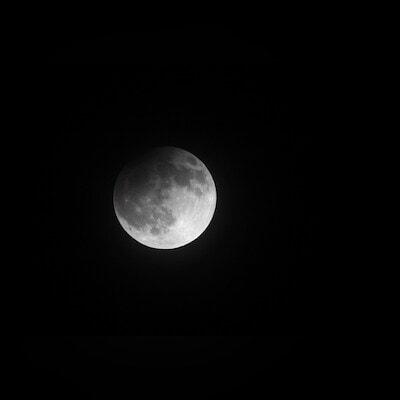moon (Photo: Shutterstock)
The global Covid-19 lockdowns that hit the world in 2020 reduced the moon’s lunar surface temperatures, the latest study revealed.
Indian researchers conducted a study, published in the Monthly Notices of the Royal Astronomical Society: Letters, announcing that the lunar nighttime temperatures experienced a significant dip during the lockdown period of April-May 2020 on earth.
Click here to connect with us on WhatsApp
The Physical Research Laboratory (PRL) research team led by K Durga Prasad and G Ambily analysed data from Nasa’s Lunar Reconnaissance Orbiter of six different sites on the moon’s nearside between 2017 and 2023.
According to the latest study, the Moon’s temperature dipped by around 8 to 10 per cent Kelvin every month on the surface, during the 2020 lockdown on earth, than the same period in other years. The temperature drop was the result of fewer greenhouse emissions and aerosols that led to less heat being trapped and re-emitted by Earth’s atmosphere.
The research paper states, “Results showed an anomalous dip in the lunar night-time surface temperatures for all the sites during April–May 2020, the strict COVID-19 global lockdown period, when compared to the values of the same period during the previous and subsequent years.”
In 2020, the lowest temperature recorded was 96.2 K, while the highest of the lowest temperature at another site in 2022 was 143.8 K. The year 2020 witnessed the coldest temperatures in most of the sites with a noticeable trend in 2021 and 2022 after human activity resumed on earth.
The authors of the research acknowledge that more data is required to establish a link between earth’s radiation changes and the lunar surface temperatures. The future moon-based observatories could play a crucial role in studying earth’s climate and environmental shifts.
The discovery highlights earth’s interconnectedness with its celestial neighbour, providing a fresh perspective on the broader cosmic effects of human activities in the world.
First Published: Sep 30 2024 | 4:40 PM IST



